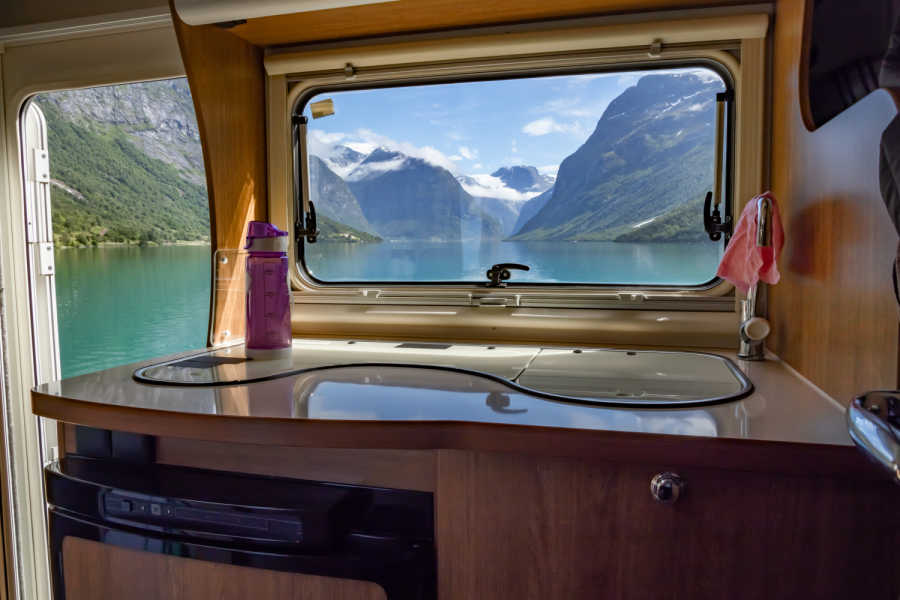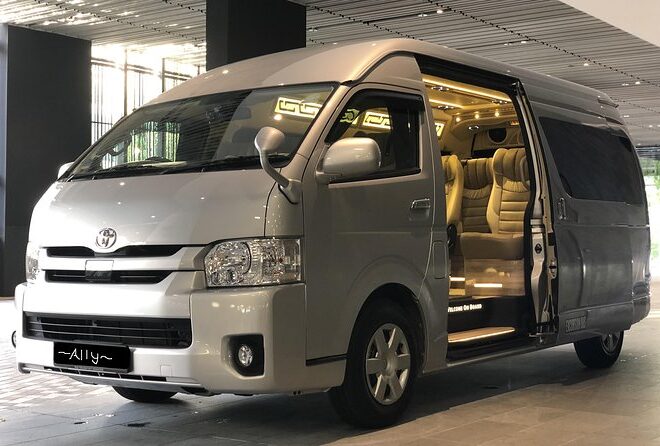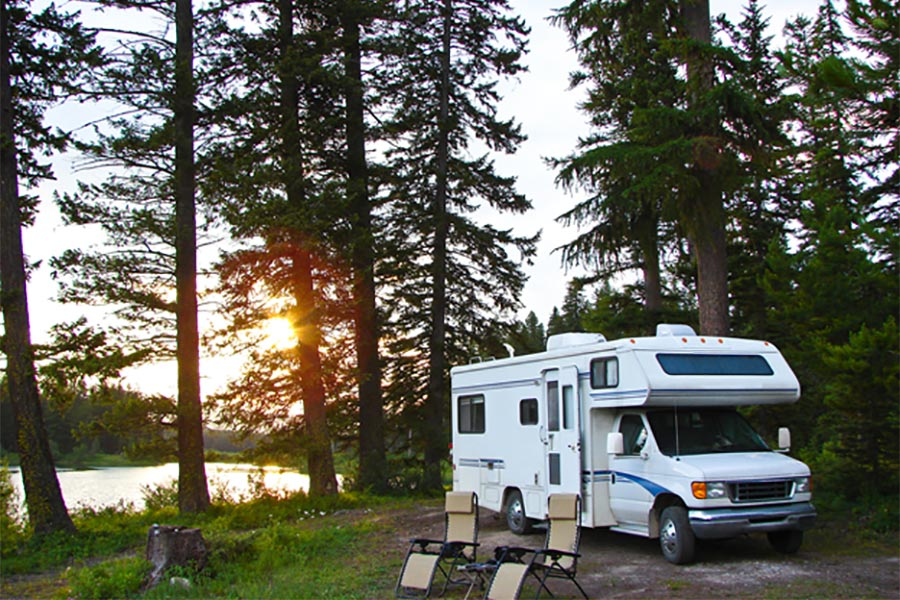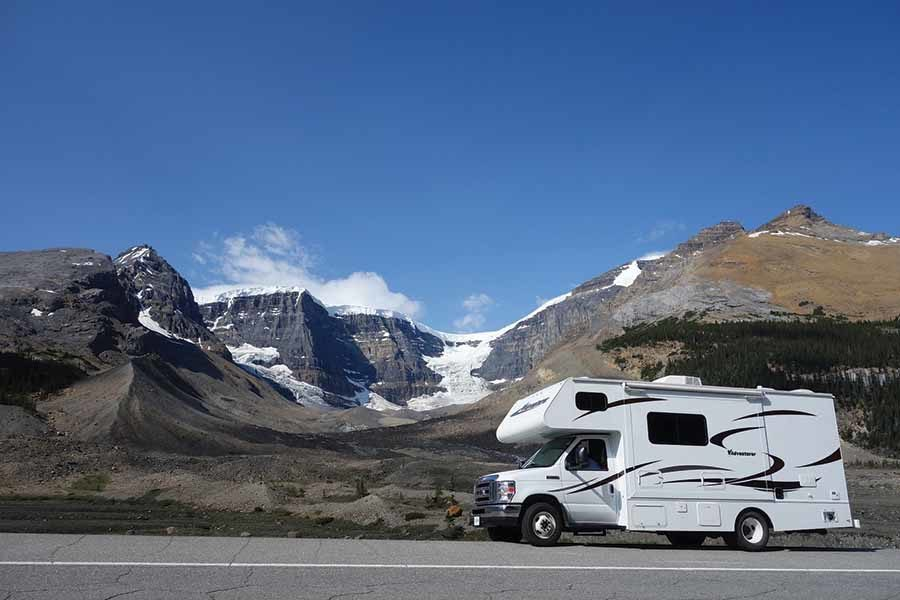
Boondocking 101: A Guide to Off-Grid RV Camping
Boondocking, also known as off-grid camping, is an increasingly popular way for RV enthusiasts to experience the great outdoors without the constraints of traditional campgrounds. By going off the grid, you can enjoy nature in its purest form, all while cutting costs and escaping the crowds. This guide will walk you through the essentials of boondocking, from what it entails to how to prepare for a successful off-grid RV camping experience.

What Is Boondocking?
Boondocking refers to camping without traditional hookups such as water, electricity, or sewer connections. Unlike staying in a designated RV park, boondocking typically takes place in remote locations like national forests, public lands, or even parking lots. It’s a form of dry camping, meaning you rely solely on your RV’s internal systems and any resources you’ve packed along.
Benefits of Boondocking:
- Cost savings: Boondocking is often free or very affordable, making it a great option for budget-conscious travelers.
- Privacy and solitude: Enjoy peaceful, secluded camping spots away from the crowds.
- Closer connection with nature: Boondocking allows you to immerse yourself in nature, often in areas that are less developed and more scenic than traditional campgrounds.
Preparing for a Boondocking Trip
Because you won’t have access to the usual amenities, proper preparation is key to a successful boondocking experience. From managing your water supply to ensuring adequate power, here’s how to get ready for your off-grid adventure.
- Water Management
Water is a crucial resource when boondocking, as you’ll need it for drinking, cooking, and cleaning. Since you won’t have access to a water hookup, it’s essential to plan your usage carefully.
Water Tips:
- Fill your fresh water tank before heading out and monitor your usage to make it last throughout your stay.
- Conserve water by taking short showers, turning off the faucet while brushing your teeth, and using minimal water for dishwashing.
- Carry extra water in portable containers in case your RV’s tank runs low.
- Power Solutions
When boondocking, you’ll need a reliable source of power for your RV’s appliances and lighting. Your options for off-grid power include your RV’s battery, solar panels, and generators.
Power Solutions:
- Solar panels: Installing solar panels on your RV is an eco-friendly way to generate power. Solar setups can recharge your batteries and keep your appliances running during the day.
- Generators: A portable generator can provide electricity, but it’s important to use it sparingly due to noise and fuel consumption.
- Battery maintenance: Keep your RV’s battery in good condition by recharging it regularly and avoiding excessive power consumption.
- Waste Management
Proper waste disposal is critical when boondocking to maintain the cleanliness of the environment and avoid fines or penalties.
Waste Management Tips:
- Use your RV’s holding tanks for greywater (used water) and blackwater (sewage). Make sure your tanks are empty before you start your trip, and dump them at appropriate disposal stations when full.
- Minimize waste by using biodegradable soap and limiting the amount of trash you produce.
- Carry trash bags and dispose of your garbage responsibly at designated sites.
Finding Boondocking Locations
Boondocking spots can be found on public lands, including national forests, Bureau of Land Management (BLM) areas, and even some Walmart parking lots (for short stays). It’s important to research your destination ahead of time to ensure boondocking is allowed and safe.
Popular Boondocking Locations:
- National Forests: Many U.S. national forests allow dispersed camping, meaning you can set up your RV in undeveloped areas for free or a small fee.
- Bureau of Land Management (BLM) Land: BLM land in the western U.S. offers expansive areas for boondocking, with few restrictions and no costs in many locations.
- Parking Lots: If you need a quick overnight stop, some businesses like Walmart or Cracker Barrel may allow RVs to park overnight with permission.
Essential Boondocking Tips for Beginners
While boondocking offers freedom and adventure, it also comes with challenges. For first-time boondockers, it’s important to be prepared and adaptable. Here are a few tips to help you make the most of your experience:
- Start Small
If you’re new to boondocking, try it for just a night or two before committing to longer stays. This gives you the opportunity to test your equipment and adapt to the off-grid lifestyle without feeling overwhelmed.
- Monitor Your Resources
Pay close attention to your water, power, and waste levels. These are finite resources when boondocking, and running out of any one of them can cut your trip short.
- Be Respectful of Nature
Always follow Leave No Trace principles when boondocking. Clean up after yourself, avoid disturbing wildlife, and leave the area as you found it for future visitors.
Conclusion: Embrace the Freedom of Boondocking
Boondocking provides a unique way to experience the beauty of nature while embracing the freedom of life on the road. By preparing carefully, managing your resources, and choosing the right locations, you can enjoy a rewarding and adventurous off-grid RV camping experience. Whether you’re looking for solitude or a budget-friendly alternative to RV parks, boondocking offers endless possibilities.



